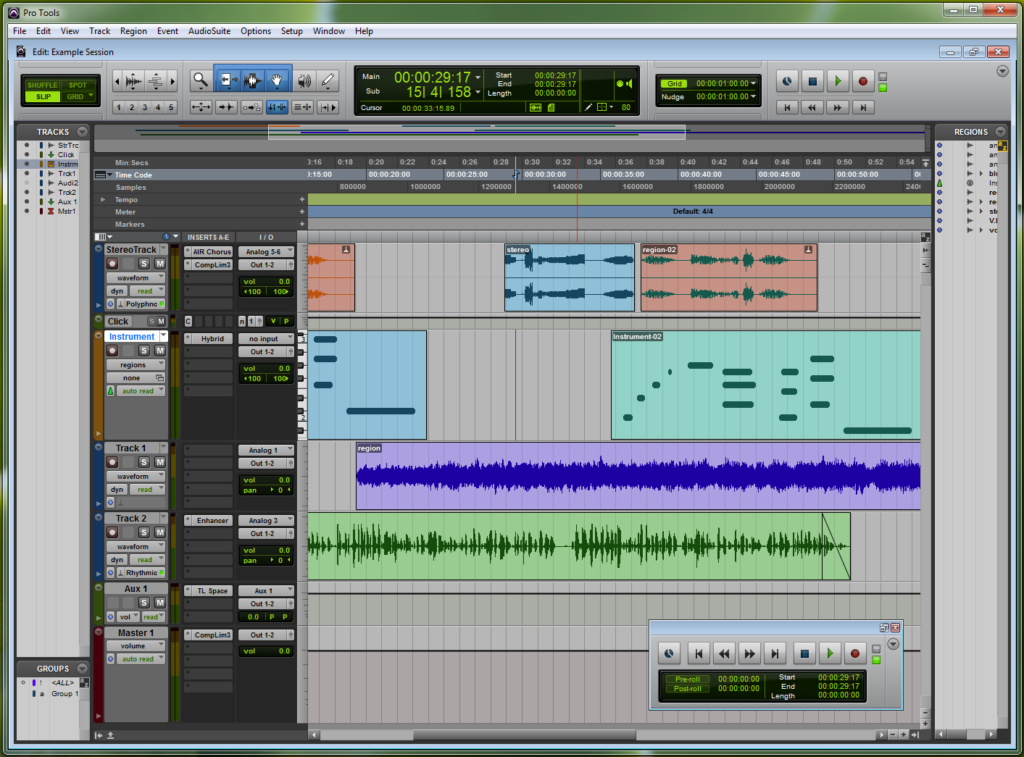Unveiling the Power of Pro Tools on Linux: A Comprehensive Guide

Introduction: Pro Tools, the industry-leading digital audio workstation (DAW), has long been synonymous with professional audio production. However, for Linux users, accessing Pro Tools has historically posed a challenge due to its compatibility limitations. Fortunately, with advancements in technology and the dedication of the open-source community, it’s now possible to harness the power of Pro Tools on Linux. In this comprehensive guide, we’ll explore the intricacies of using Pro Tools on Linux, from installation to optimization, enabling you to unlock a world of creativity and productivity in your audio projects.
Chapter 1: Understanding Pro Tools Compatibility with Linux Pro Tools is primarily developed for macOS and Windows operating systems, which has traditionally left Linux users without native support. However, through the use of compatibility layers and emulation software, it’s now feasible to run Pro Tools on Linux systems. Understanding the nuances of compatibility layers, such as Wine and Proton, is essential for successfully running Pro Tools on Linux. These tools enable Linux users to execute Windows applications, including Pro Tools, by providing a translation layer between the Windows API calls and the Linux system.
Chapter 2: Setting Up Your Linux Environment for Pro Tools Before diving into the installation process, it’s crucial to ensure that your Linux environment is properly configured to support Pro Tools. This includes installing necessary dependencies, such as Wine and related libraries, and optimizing system settings to maximize performance. Additionally, verifying hardware compatibility, particularly with audio interfaces and MIDI controllers, is essential for a smooth Pro Tools experience on Linux. By carefully preparing your Linux environment, you can minimize potential issues and optimize your workflow from the outset.
Chapter 3: Installing Pro Tools on Linux Once your Linux environment is configured, the next step is to install Pro Tools. While Pro Tools isn’t natively compatible with Linux, it can be installed using compatibility layers like Wine or Proton. These tools allow you to run the Windows version of Pro Tools on your Linux system, albeit with varying degrees of compatibility and performance. Detailed instructions for installing Pro Tools via Wine or Proton can be found online, along with community-supported resources and troubleshooting tips. Additionally, exploring alternative DAWs and audio production software that offer native Linux support can provide viable alternatives for Linux users seeking professional-grade audio production tools.
Chapter 4: Optimizing Pro Tools Performance on Linux Optimizing performance is paramount when running Pro Tools on Linux, as the compatibility layer introduces additional overhead that can impact stability and responsiveness. Strategies for optimizing Pro Tools performance on Linux include adjusting buffer sizes, prioritizing system resources, and minimizing background processes. Additionally, experimenting with different Wine or Proton configurations, such as enabling specific compatibility modes or tweaking advanced settings, can help mitigate compatibility issues and improve overall performance. By fine-tuning your Linux environment and Pro Tools configuration, you can achieve optimal performance and stability for your audio projects.
Chapter 5: Troubleshooting Common Issues Despite meticulous preparation and optimization, encountering issues when using Pro Tools on Linux is not uncommon. From audio latency and driver compatibility issues to plugin conflicts and stability issues, troubleshooting may be necessary to address unexpected challenges. Fortunately, the Linux community is a valuable resource for troubleshooting Pro Tools issues, with forums, wikis, and user groups offering a wealth of knowledge and support. By leveraging community resources and sharing experiences with fellow Linux users, you can overcome common issues and enhance your Pro Tools experience on Linux.
Chapter 6: Exploring Alternatives and Workarounds While running Pro Tools on Linux is possible through compatibility layers, exploring alternative DAWs and audio production software designed specifically for the Linux platform may offer a more seamless and integrated experience. Open-source DAWs like Ardour and Qtractor, along with commercial offerings like Bitwig Studio, provide native Linux support and robust feature sets comparable to Pro Tools. Additionally, virtualization solutions, such as running Windows within a virtual machine or using cloud-based DAW services, offer alternative approaches for accessing Pro Tools on Linux. By exploring these alternatives and experimenting with different workflows, you can find the solution that best suits your needs and preferences as a Linux user.
Conclusion: Pro Tools on Linux represents a significant milestone for the open-source community, enabling Linux users to access one of the most powerful and widely-used DAWs in the industry. While running Pro Tools on Linux requires navigating compatibility challenges and optimizing performance, the rewards of accessing professional-grade audio production tools on the Linux platform are well worth the effort. By following the guidelines outlined in this comprehensive guide and leveraging the support of the Linux community, you can unlock new possibilities for creativity and productivity in your audio projects, empowering you to realize your musical vision on the Linux platform.





